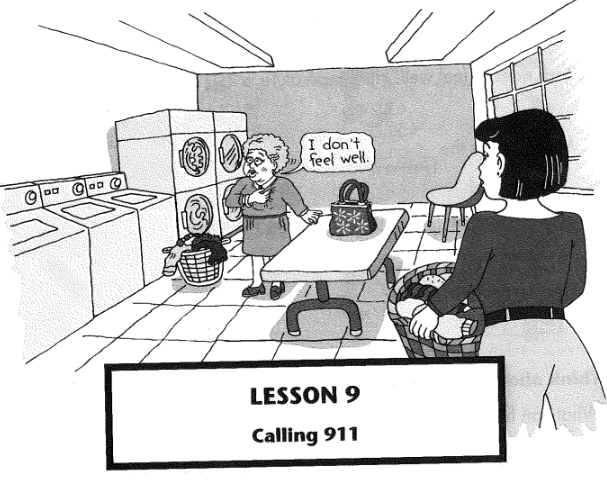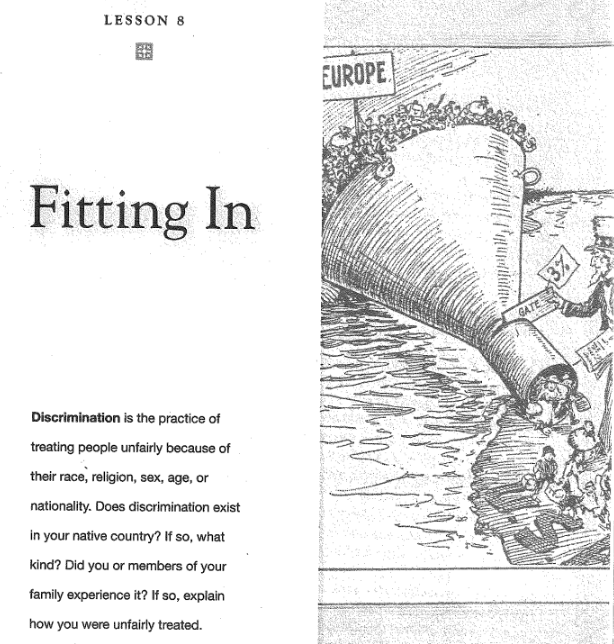Enjoy the first chapter of Wiley Cash’s second novel, This Dark Road to Mercy, below. We dare you to try to put it down! Here is what the reviewers thought:
… a graceful novel that is steeped in strong characters driven by a longing to connect with each other.” – Florida Sun-Sentinel
A heartfelt and nuanced story, exploring the lines between fear and trust, redemption and love.” – Chicago Tribune
Exciting and suspenseful as well as moving, with a captivating heroine, this is a tremendous book…” – The Guardian
After devouring the chapter, click here to purchase tickets to hear author Wiley Cash as the Authors for Literacy Dinner & Silent Auction keynote speaker. Malaprop’s Bookstore will have Wiley Cash’s books for sale at the event, and the author will conduct a booksigning.
This Dark Road to Mercy
 Chapter 1 – Easter Quillby
Chapter 1 – Easter Quillby
Wade disappeared on us when I was six years old, and then he showed up out of nowhere the year I turned twelve. By then I’d spent half my life listening to Mom blame him for everything from the lights getting turned off to me and Ruby not having new shoes to wear to school, and by the time he came back I’d already decided that he was the loser she’d always said he was. But it turns out he was much more than that. He was also a thief, and if I’d known what kind of people were looking for him I never would’ve let him take me and my little sister out of Gastonia, North Carolina, in the first place.
My earliest memories of Wade are from my mom taking me to the baseball stadium at Sims Field back before she died. She’d point to the field and say, “There’s your daddy right there.” I wasn’t any older than three or four, but I can still remember staring out at the infield where all the men looked the exact same in their uniforms, wondering how I would ever spot my daddy at a baseball game if he looked just like everybody else.
It’s funny to think about that now, because on the day he decided to come back for us I knew Wade as soon as I saw him sitting up in the bleachers down the first base line. I’d always called him “Wade” because it never felt right to think of him as “Dad” or “Daddy” or anything else kids are supposed to call their parents. Parents who got called things like that did stuff for their kids that I couldn’t ever imagine Wade doing for us. All he’d ever done for me was give me a baby sister named Ruby and enough stories for my mom to spend the rest of her life telling, but she ended up dying just before I turned twelve, which was the only reason Wade came looking for me and Ruby in the first place.
I’d just made it to third base, and I had no problem acting like I didn’t see him sitting up there. My eyes raised themselves just enough to spy Ruby sitting on the bench, waiting on her turn to kick. She had her back to the bleachers and hadn’t seen him yet; she might not even have recognized him if she did.
To look at Ruby and Wade you wouldn’t even know they were related, but you might could’ve said the same thing about me and her. Ruby looked just like Mom. She had long dark hair, dark eyes, and dark skin even in the wintertime. I was just the opposite. My hair was strawberry-blonde and straight as a board, and my skin was more likely to burn and freckle than tan. Ruby was beautiful – she always had been. I looked just like Wade.
The bleachers were empty except for him, and I looked around the field and saw that none of the other kids had noticed him yet. Up the hill on my right, Mrs. Hannah and Mrs. Davis stood talking out on the school playground. Neither of them had seen him yet. But I didn’t have to wait long for somebody to spot him.
“Look at that man up there,” Selena said. She was playing third base and stood bent over with her hands on her knees. She was black just like most of the kids we stayed with after school and just about all the kids we lived with at the home. Her hair was fixed in thick braids with bands that had marbles on them; they clinked together when she moved her head. I’d wanted to ask her to fix my hair just like hers, but my hair was too thin to stay in braids, which was fine with me because Selena was taller than me and seemed a lot older than me too, and I was always too nervous to talk to her. “Why’s he just sitting there watching us?” she asked.
I didn’t know if she was talking to me or if she was just talking to herself out loud. “I don’t know,” I finally said. She looked over at me like she’d forgotten I was standing on base beside her. I said a little prayer that she wouldn’t mention nothing about me and Wade looking alike, and I found myself wishing again that I looked more like Mom, like Ruby.
A third-grader named Greg stepped up to the plate, and even though something told me I shouldn’t do it, I ran toward home as soon as he kicked it. The ball didn’t do nothing but roll right back to the pitcher, and I got thrown out at the plate. I headed for the bench, but I kept my head down and didn’t look up at the bleachers. My face felt hot and I knew it had gone red, and I made myself believe I was embarrassed only because I’d been thrown out at home, not because it had all happened in front of Wade.
Ruby sat by herself on the end of the bench, swinging her feet back and forth. When I got closer, she moved that dark hair behind her ears and stuck out her hand and waited for me.
“High-five,” she said. I sat down beside her without saying anything, and then I bent over and dusted off my shoes. Ruby left her hand hanging just above my knees. “High-five,” she said again.
“It’s only a high-five when it’s up high.”
“All right,” she said. “Low-five then.”
I gave her palm a little slap, and I looked up and saw Marcus watching me from the infield at second. He was wearing a white Cubs’ jersey with Sammy Sosa’s number and name on the back. The school year had just started and it was only the third Friday in August, but Mark McGwire already had fifty-one homeruns to Sosa’s forty-eight. Me and Marcus were both rooting for Sosa to get to sixty-two and break Roger Maris’s record first. Marcus smiled at me, but I looked away like I hadn’t seen him. It made me nervous, and I pulled my hair back in a ponytail and let it drop to my shoulders. When I looked up at Marcus again he was still smiling. I couldn’t help but smile a little bit too, but then I heard a voice whisper my name. “Hey!” it said. “Easter!”
It was Wade, leaning against the outside of the fence about halfway down to first base. Ruby looked up at him, stared for a second, and then looked at me. Wade smiled and waved us over. “Is that –?” she started to ask, but I stopped her before she could finish.
“Wait here,” I said, standing up from the bench.
“Easter,” Ruby said. She jumped down like she was fixing to follow me.
“Wait here,” I said again. She just stood there looking at me, and then she looked down the fence at Wade. I pointed to the bench and watched her climb back onto it. She crossed her arms like I’d scolded her. “I’ll be right back,” I said. I looked up the hill at Mrs. Hannah and Mrs. Davis. They still hadn’t seen Wade. I kept close to the fence and made my way down the baseline.
Wade had on an old blue Braves’ cap, and his hair, the same strawberry-blonde as mine, stuck out around his ears. Whiskers covered his face and ran down his neck, and drops of white paint were all over his green t-shirt and blue jeans. He lifted his hand where it sat on top of the fence and gave me a little wave. “Hey,” he said, smiling. White paint was all over his hands too.
Before I got to him, I stopped and crossed my arms and leaned my shoulder against the fence. Wade didn’t need to think I was happy to see him all of a sudden – that he could just show up after school one day and everything would be okay. To tell the truth, I didn’t even want to look at him.
“Y’all trying to integrate the Negro League?” he asked. He laughed like his joke should’ve made me laugh too, but it didn’t. He took his hands off the top of the fence and put them in his pockets.
I looked out at the field where the inning was just getting over. Marcus walked from the infield toward the bench on the other side of home plate, watching me the whole way. His face looked worried, and I wanted to smile and let him know that it was okay, that I knew the man talking to me, that I knew what I was doing, but I didn’t want him thinking I was giving him some kind of sign to come over and check on me. I didn’t want him meeting Wade. I turned back to Wade, my arms still crossed. “Why are you here?”
He sighed and raised his eyes and looked toward the outfield, and then he looked down at me. “I heard about what happened to y’all’s mother,” he said.
“You heard today?”
“No, not today,” he said. “A while ago.”
“‘A while ago’ meaning you should’ve come to her funeral, what little bit of one she had? ‘A while ago’ meaning you should’ve come and checked on us before now, before they put us in a home?”
“No,” he said. “Not that long ago.”
“Just long enough to do nothing.”
“Nothing until now.”
“Until now?” Just saying that made me laugh. I unfolded my arms and turned to walk back to the bench where Ruby was waiting on me.
“Hold on, Easter,” he said. “Talk to me for one minute – just one minute.” He’d taken his hands out of his pockets and grabbed hold of the chain links in the fence.
“I got to take the field,” I said, and even as I said it I thought it sounded like something somebody might say in a movie right before something good or something bad happened to let you know whether the ending was going to be a happy one or not.
“I just want to spend some time with you and your sister,” he said.
“You can’t,” I said. “It’s too late.”
“I know it seems too late, but y’all are all I’ve got.”
Y’all are all I’ve got: I’d heard Mom say that about a million times, but she’d said it when she tucked us in at night or when she walked us to the bus stop in the morning. Sometimes she’d said it when I found her crying in our old house late at night. She’d pull me to her and hold me like she was trying to make me feel better even though she was the one crying, and she’d rock back and forth and tell me it was going to be okay. When she’d turn me loose, I’d leave her room and get back in bed where I’d touch my nightgown and feel where it was wet with her tears. I’d look over at Ruby where she slept, and I’d hear Mom’s voice say it again: Y’all are all I’ve got. I hated to see Mom cry, but I always knew she meant what she said. I didn’t know what Wade meant when he said it; I didn’t think he knew what he meant either.
“You don’t got us anymore,” I said. “You gave us up. I’ve seen the paper you signed that says it; that’s why we’re in here, Wade.”
He looked away from me when I called him by his name. Then he blinked his eyes real slow. “I know,” he said, “and I’m sorry. But that don’t mean we can’t spend time together.”
I looked over my shoulder and saw that the inning had already started and Jasmine had taken my place at shortstop. “Great,” I said. “I lost my spot.” I turned back to Wade. “What do you think we’re supposed to spend time doing?”
“Well,” he said, “I don’t know. Your base-running could use a little work.” He stepped away from the fence and rubbed a hand down each arm, and then he touched both his ears and then the tip of his nose. “I was over here trying to help you, but I guess you didn’t see me.” He started rubbing his hands down his arms again.
“What are you doing?”
“I’m giving you a sign,” he said. “I’m telling you to stay on base, to stay right where you are. Wasn’t no way that scrawny kid was kicking it out of the infield. I still know the game, Easter. I could come check y’all out one day and we could spend a little time out here on the field, tossing a real baseball around, fielding grounders.” He smiled when he said it like he thought it was the best idea anybody’d ever had.
“‘Check us out?’” I said. “Like a library book?”
“No, not like a library book. I just mean I’d come and pick you up – spend the day with you and Ruby.”
“You can’t do that,” I said.
“Why not?”
“Because it ain’t in the rules. You can’t just come and get us.”
“What kind of place are y’all in?” he asked.
“A home for at-risk youth,” Ruby’s voice said. I looked to my right and saw her standing beside me, so close that I couldn’t believe I hadn’t felt her body up against mine. She stared up at Wade like she was afraid of him, like he might be able to climb right through the fence and pull her back through the chain links to the other side.
“I told you to stay over there,” I said. My hip nudged her back toward the bench, but she didn’t move, and she didn’t take her eyes off Wade.
“At-risk youth?” Wade said. “What are y’all at risk of? Is this the kind of place where kids freak out and hurt each other?”
“That ain’t what it’s called,” I said. “That’s something she’s heard kids at school say. It’s just a foster home.”
“Great,” he said. He pushed away from the fence and put his hands on his hips. “I hope you know y’all ain’t going to be in there long. Somebody’s going to come and get you – probably adopt both of you together because you’re sisters. You’ll probably be the next ones to go.”
“How do you know?” I asked.
“Because,” he said, his voice sounding like I should already know the answer. He looked up at the rest of the kids on the field, and then he looked back down at me. “Y’all are white.”
I heard somebody calling my name, and I turned and looked up the hill where Mrs. Davis was coming down toward us, moving faster than she would’ve been walking if everything was normal. When she saw me looking at her she waved her arms above her head and hollered my name again. Mrs. Hannah had stayed up on the playground, but she was closer to the school than she’d been before, and I could tell she was watching us and waiting to see what would happen once Mrs. Davis made it down to the field. “They’re probably going to call the police,” I said.
“Yeah?” Wade said, smiling. “For talking to your own daddy?”
“They don’t know who you are,” I said. Then I looked down at Ruby. “We don’t either.” I took her hand and walked back to the bench. I didn’t look back, but I could tell by the way she was walking that Ruby’s head was turned so she could stare at Wade. “Come on,” I said, giving her hand a good yank so she’d walk faster.
Mrs. Davis had made it to the bottom of the hill by the time we got back to the bench and sat down. She walked inside the fence and squatted down in front of me and Ruby. She had light-brown skin and short curly hair and wore thick glasses. “Who was that man y’all were talking to?” she asked.
I looked down to where Wade had been standing at the fence, but he was gone. “I don’t know him,” I said. I put my hand on Ruby’s knee. “Neither one of us do.”

 Calling 911 (Beginner)
Calling 911 (Beginner)







